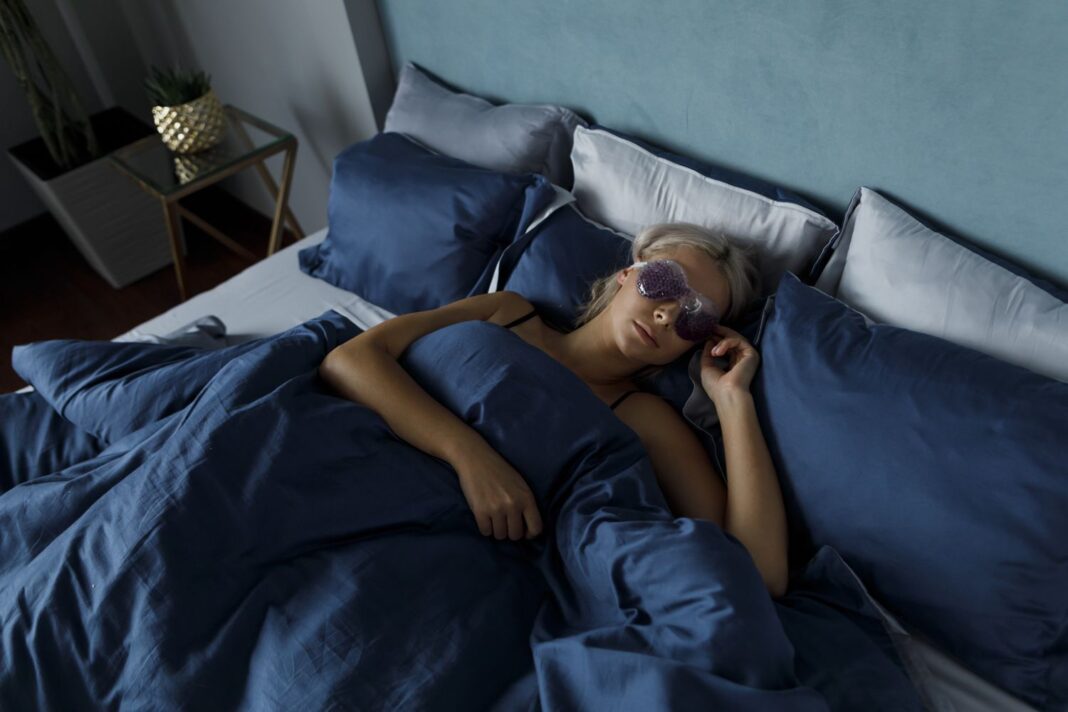Key Takeaways
- The TikTok trend of “sleepmaxxing” encourages sleep optimization, but experts warn that this focus can contribute to sleep anxiety.
- While certain sleep aids like white noise machines might improve rest, research on many popular sleep hacks, such as intermittent melatonin use, remains inconclusive.
- Experts advise sticking to simple, proven sleep habits, like maintaining a consistent sleep schedule and creating a relaxing sleep environment.
Sleep trends are all the rage on TikTok, where creators share numerous “hacks” for better rest. These methods vary widely, including mouth taping to encourage nose breathing, using nostril expanders, taking supplements, and investing in sleep-tracking devices like an Oura ring.
Now, TikTok has coined the term “sleepmaxxing” to describe this collective obsession with sleep optimization, but experts say the practice is often counterproductive.
“When patients become obsessed with the data obtained from their devices—for instance, with the focus on the duration of their sleep, the quality of their sleep, and the percentage of stages of sleep that seem out of range—that by itself can promote anxiety about sleep and predispose to insomnia,” said I Sunderram, MDa professor of medicine and sleep specialist at Rutgers Robert Wood Johnson Medical School.
The sleepmaxxing trend presents many hacks as cure-alls for sleep issues, including:
- Taking certain supplements, like magnesium or melatonin.
- Drinking a “sleepy girl mocktail” with tart cherry juice.
- Taping your mouth shut before bedtime so you breathe through your nose.
- Using a weighted blanket
- Using a wearable device to track your sleep.
- Using a white noise machine.
- Applying layers of beauty products at night before going to bed, then removing them during a “morning shed” routine.
- Organizing your food and drink habits around your ideal sleep schedule.
“If any of these things really worked, I’d be the first to take them myself,” Nitun Verma, MDa spokesperson for the American Academy of Sleep Medicine, told Verywell.
Some practices, like using a white noise machine to drown out distracting noises, may help improve sleep. However, research on the effectiveness of many sleep hacks—such as intermittent melatonin use—has been inconclusive. And not everyone finds them relaxing or useful for sleep, experts say. For example, many people find having materials on their face, like the remnants of a skincare mask, to be distracting.
The Fixation on Optimizing Sleep
Sleepmaxxing could lead to orthosomnia, a term researchers use to describe an obsessive focus on achieving perfect sleep.
While some sleep hacks can help you wind down, your brain may start to perceive them as necessary for sleep, which can end up disrupting your ability to fall or stay asleep.
“It comes down to intent. If the intent is ‘I am doing this because I need these interventions in order to sleep,’ they’re no longer useful,” said Ellen Wermter, FNP, DBSMa nurse practitioner and behavioral sleep medicine specialist with the Society of Behavioral Sleep Medicine
For example, if you believe you need a specific skincare routine in order to fall asleep, it may create anxiety around falling asleep. But if the routine makes you feel relaxed, it could very well help your body slip into sleep mode.
How to Maintain a Healthy Sleep Routine
Experts emphasize that occasional sleep disruptions or alerts from sleep trackers aren’t a reason to panic or change your routine.
“If you’re functioning well and living well, don’t pay attention to a device that’s telling you your sleep isn’t 100% perfect,” Thomas Tolbert, MDa pulmonary medicine and sleep medicine physician at Mount Sinai, told Verywell.
The fundamentals for getting restful sleep are simple:
- Going to bed and waking at the same time each day
- Sleeping in a cool, dark, quiet environment
- Avoiding screen time right before bed
- Avoiding caffeine, alcohol, and large meals right before bed
- Exercising regularly
“Anytime you’re doing these basics on a regular basis and you’re still finding yourself not able to function during the day—if you still regularly feel the urge to fall asleep [during the day]—those are signs that you might want to seek a consultation,” said Joseph Dzierzewski, PhDvice president of research and scientific affairs at the National Sleep Foundation.
What This Means For You
Trendy sleep hacks may seem appealing, but they often provide little benefit and can even increase anxiety around sleep. Focus on basic sleep strategies like a consistent bedtime, a comfortable sleep space, and limiting screen time before bed. If you continue to struggle with daytime sleepiness or disrupted sleep despite following these habits, consider consulting a healthcare professional for further evaluation.





